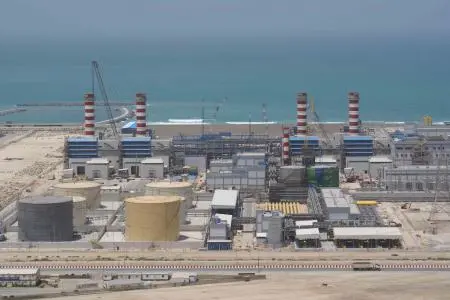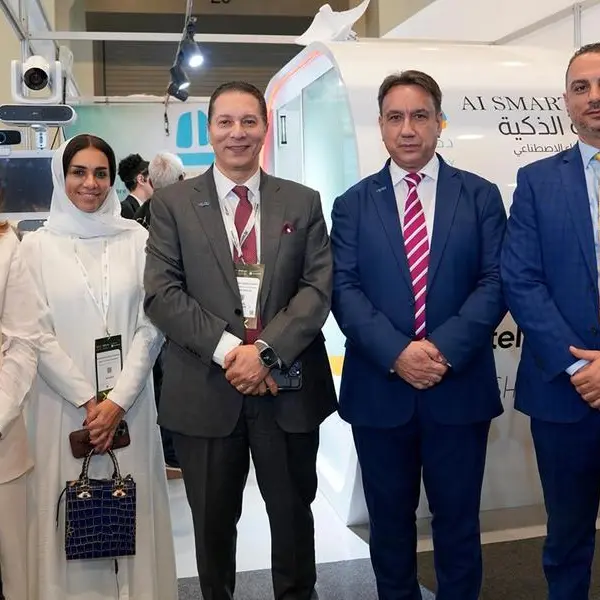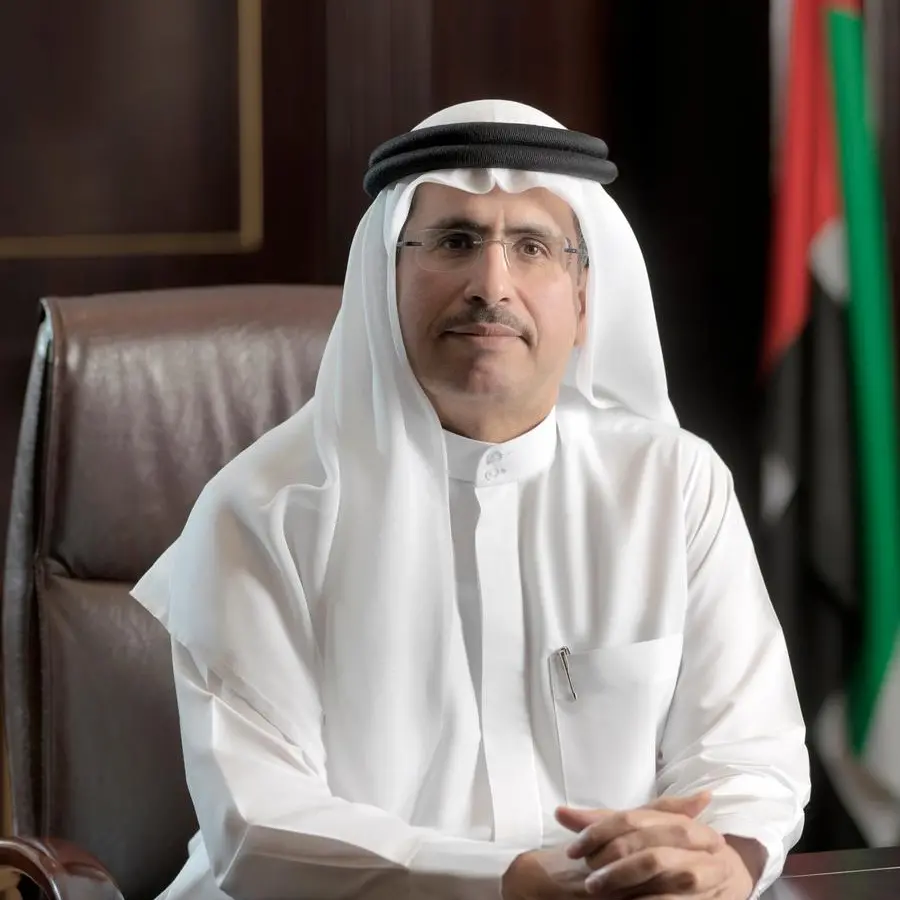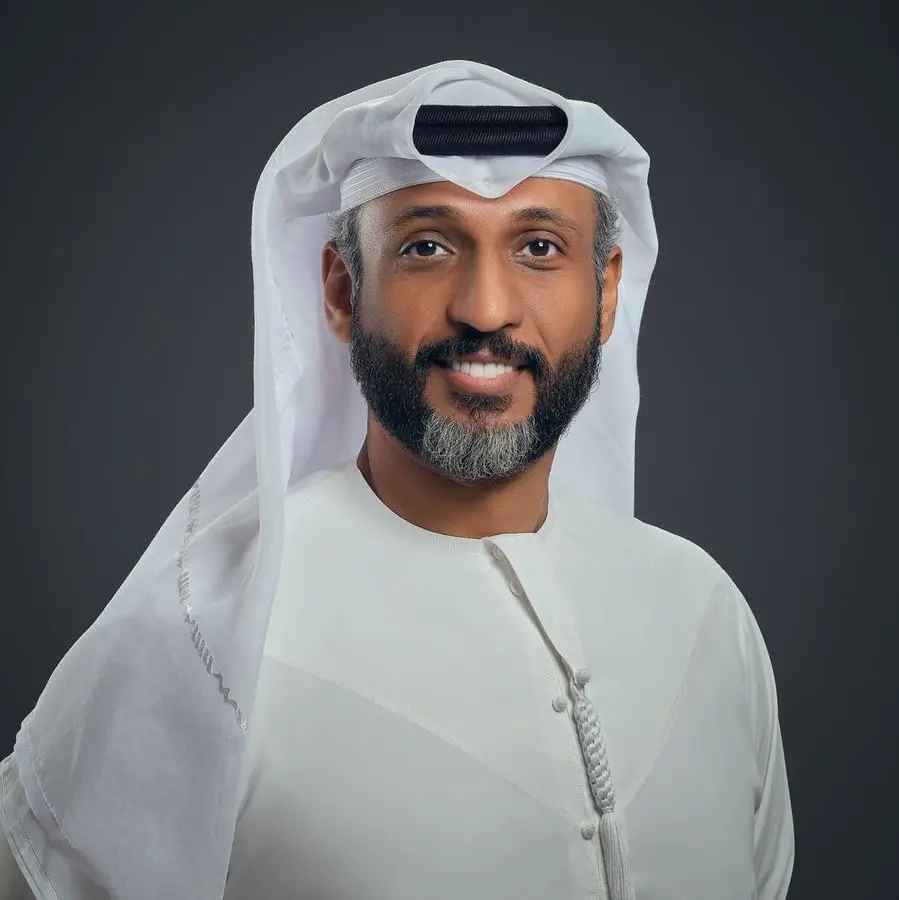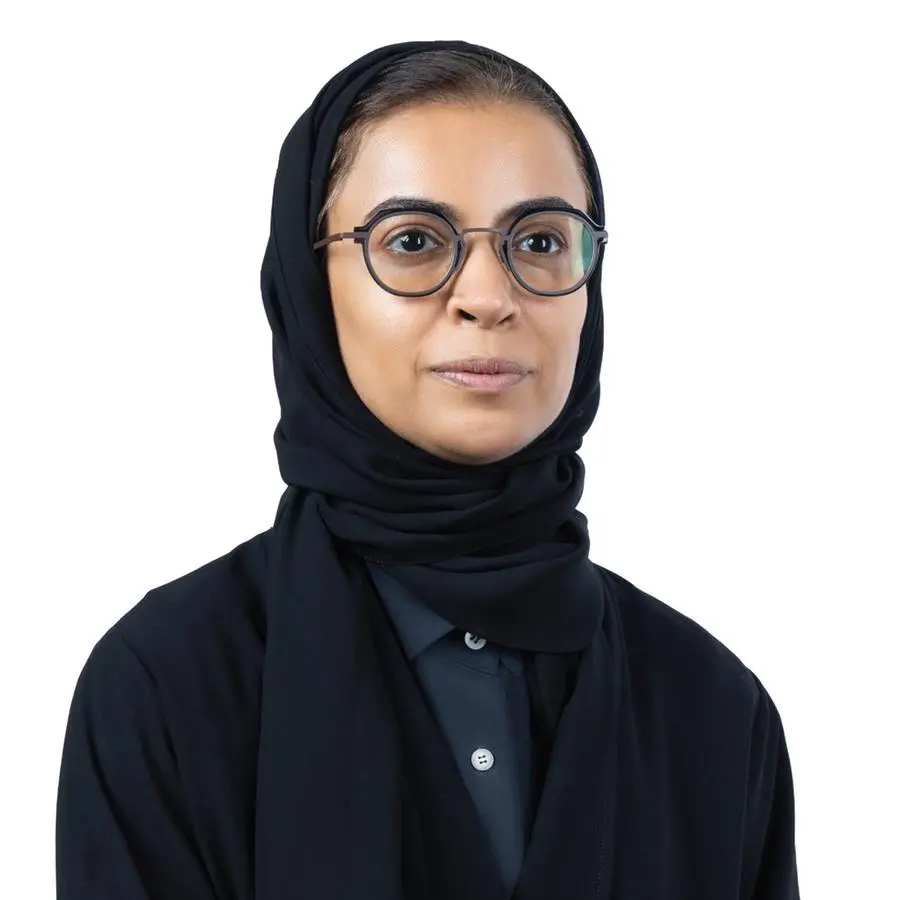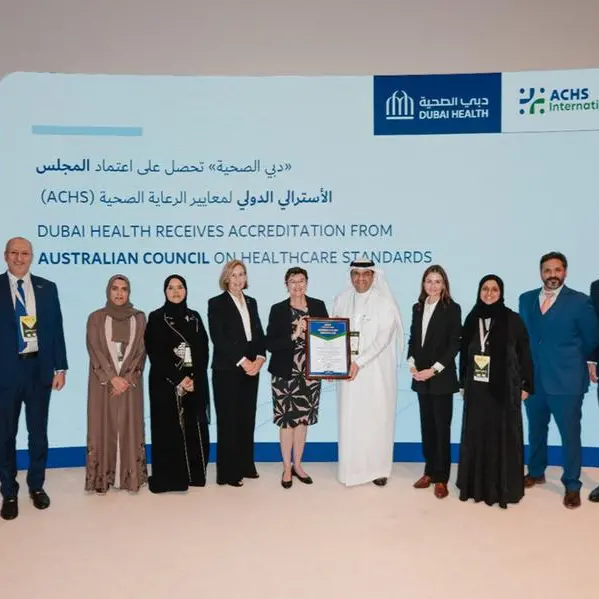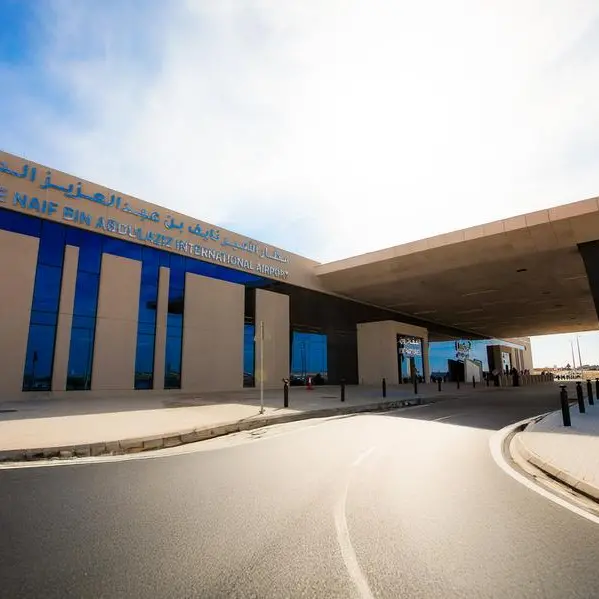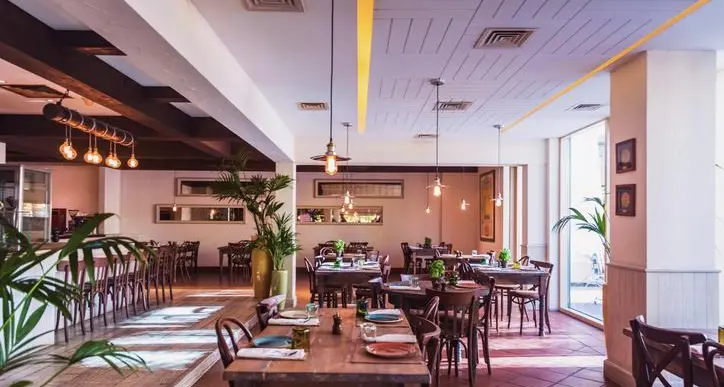PHOTO
Dubai, UAE: Dubai adopts three pillars to ensure the sustainability of water production. These are based on using clean solar energy to desalinate seawater using the latest Reverse Osmosis (RO) technologies. Excess water is stored in aquifers and pumped back into the water network when needed. This integrated innovative model protects the environment and is a sustainable economic solution. It also emphasises Dubai’s ability to anticipate and shape the future.
Dubai Electricity and Water Authority (DEWA) adopts a clear strategy to ensure that by 2030, 100% of desalinated water will be produced by a mix of clean energy that uses both renewable energy and waste heat. This will allow Dubai to exceed global targets for using clean energy to desalinate water. Increasing the operational efficiency in decoupling desalination from electricity production will save around AED 13 billion and reduce 43 million tonnes of carbon emissions by 2030. In 1992, DEWA’s installed capacity was 65 Million Imperial Gallons Per Day (MIGD). Today, to keep pace with Dubai’s growing demand and prosperity, DEWA's installed capacity is 470 MIGD. By 2030, Reverse Osmosis will help expand our production capacity to 305 million gallons of desalinated water per day, increasing desalinated water production capacity to 750 million gallons of desalinated water per day by 2030.
DEWA adopts a clear strategy to ensure that by 2030, 100% of desalinated water will be produced by a mix of clean energy that uses both renewable energy and waste heat by 2030. This will allow Dubai to exceed global targets for using clean energy to desalinate water.
“DEWA recognises the role of modern technologies in developing the energy and water sectors, and redefining the concept of utilities to achieve the vision and directives of the UAE’s wise leadership to keep pace with the latest developments and disruptive technologies of the Fourth Industrial Revolution, while focusing on shaping the future and improving the skills of Emiratis. This achieves the National Artificial Intelligence Strategy 2031, to develop an integrated system that employs AI in vital areas of the UAE,” said HE Saeed Mohammed Al Tayer, MD & CEO of DEWA.
“His Highness Sheikh Mohammed bin Rashid Al Maktoum, Vice President and Prime Minister of the UAE and Ruler of Dubai, launched the Dubai 10X initiative to mandate the Government of Dubai to become a global leader that is 10 years ahead of all other cities through government innovation and reshaping the way things have been done before. To achieve this initiative, DEWA is committed to incorporating innovation in all its strategies and initiatives, this supports government plans such as the UAE Strategy for the Fourth Industrial Revolution, to strengthen the UAE's position as a global hub for the Fourth Industrial Revolution, and increase its contribution to the national competitive knowledge-based economy by advancing innovation and future technologies,” said Al Tayer.
“DEWA is currently desalinating water through the Combined Cycle Co-Generation, which is efficient and depends on using waste heat created by the production of electricity for water desalination,” said Al Tayer.
Significant results in reducing losses from electricity and water transmission networks
Over the past few years, DEWA has achieved very competitive results in its global benchmarking, surpassing major European and American utilities. It reduced losses from electricity transmission and distribution networks to 3.2% compared to 6-7% in the US and Europe; and water network losses were reduced to 6.6% compared to 15% in North America, which is one of the best results in the world. These results underline DEWA’s global leadership in different areas.
SWRO based desalination plant in Jebel Ali
DEWA has awarded an AED 871 million contract for the construction of 40 MIGD Sea Water Reverse Osmosis (SWRO) based desalination plant in Jebel Ali, to a joint venture comprising ACCIONA Agua S.A and Belhasa Six Construct (BeSIX).
This new Seawater Reverse (SWRO) Plant is being developed as a brown field seawater desalination plant and associated facilities, with the selected desalination technology being Sea Water Reverse Osmosis (SWRO), two (2) pass RO, including pre-treatment facilities. This Plant is expected to be commissioned by May 2020 to meet the reserve margin criterion set for peak water demand for the year 2020 and beyond.
Water reservoirs at Al Nakhli and Al Lusaily
DEWA implements its strategic plan which is a vital part of Dubai Plan 2021. It also aims to establish Dubai’s leading position in the region, as an example of an effective and efficient infrastructure for electricity and water networks, to meet current and future requirements for all aspects of development in the Emirate. This project supports DEWA’s efforts to enhance the efficiency and reliability of the water network, increase water flow to fulfil the increasing demand for water in all parts of Dubai, and raise the volume of the Emirate’s water reserves and support sustainable development.
In January 2018, DEWA awarded a consultancy project worth AED 6.3 million to design and construct two water reservoirs. One is at Al Nakhli, with a storage capacity of 120 million gallons of desalinated water. The other is at Al Lusaily, with a storage capacity of 60 million gallons, to increase the storage capacity of Dubai to 1,010 million gallons.
Hydroelectric power station at Hatta
In August 2019, DEWA awarded a consortium comprising Strabag Dubai LLC, Strabag AG, Andritz Hydro and Ozkar with a construction contract for the AED 1.437 billion pumped-storage hydroelectric power station at Hatta. This is part of the Comprehensive Development Plan for Hatta, launched by His Highness Sheikh Mohammed bin Rashid Al Maktoum.
The hydroelectric power station will use the water in the Hatta Dam, stored in an upper reservoir that will be built in the mountain. Turbines that use clean solar power from the Mohammed bin Rashid Al Maktoum Solar Park, will be used to pump water from the dam to the upper reservoir. The waterfall from the upper reservoir will generate electricity using turbines when required. The efficiency of the power generation and storage cycle will reach 80% within 90 seconds of the response to demand for electricity.
Multi-Stage Flash (MSF) technology
DEWA strives to increase the efficiency of its water production stations using PV and other solar power technologies. To achieve this, DEWA works on connecting Multi-Stage Flash (MSF) stations to a central source of solar energy, such as the Mohammed bin Rashid Al Maktoum Solar Park. To ensure the sustainability of water desalination, DEWA plans to build RO desalination plants which require 90% less of MSF stations. This makes it a more sustainable option for water desalination.
The first water desalination project
DEWA has adopted the Independent Water Producer (IWP) for the Hassyan desalination plant, which is the first water desalination project that DEWA has undertaken that uses this model. This follows the success of the Independent Power Producer (IPP) model at the Mohammed bin Rashid Al Maktoum Solar Park projects. The SWRO project is expected to start operations in 2023, with a capacity of 120 MIGD.
M-Station
In April 2019, DEWA inaugurated the extension project of M-Station in Jebel Ali, the largest power and water desalination plant in the UAE.
With the construction of the extension, the total cost of M-Station reached AED 11.669 billion while its production capacity reached 2,885 megawatts (MW) and 140 million gallons of desalinated water per day. Built according to the highest standards of availability, reliability, efficiency and quality, the AED 1.527 billion extension project added new generating units with a capacity of 700MW.
Water storage
DEWA plans to launch an Aquifer Storage & Recovery Scheme (ASR), where excess water is stored in aquifers and pumped back into the water network when needed. DEWA is building a subterranean water basin to store 6,000 million gallons of water that can be retrieved when needed. This will provide the Emirate with a strategic reserve of over 50 million gallons of water per day in emergencies, while ensuring the quality of the stored water remains unaffected by external factors.
R&D Centre
DEWA’s R&D Centre at the Mohammed bin Rashid Al Maktoum Solar Park highlights four major operational areas: electricity generation from solar energy, integration of smart grids, energy efficiency, and water.
RO water desalination plant using solar PV
DEWA collaborates with the UAE Water Aid Foundation (Suqia UAE), under the umbrella of the Mohammed bin Rashid Al Maktoum Global Initiatives, in the research and development of water desalination using solar power. The two parties have developed a Reverse Osmosis water desalination plant using solar PV with a capacity of 50 m3 / day, with 7 hours of power storage at the Mohammed Bin Rashid Al Maktoum Solar Park. The project relies on a hybrid energy system combining photovoltaic cells (100 kW) and power storage system (batteries) with a capacity of 520 kWh. Both parties had previously cooperated in the project of reverse osmosis desalination plant and solar photovoltaic with a capacity of 7.7 cubic meters per day.
Easy steps to electricity/water management
DEWA provides this service through its ‘One Window’ system on DEWA’s website and smart app. The service offers several services including Deactivation of Electricity/Water (Move-out), Activation of Electricity/Water (Move-in) and Transfer of Electricity/Water (Move-to) for all customer categories.
It also allows customers to get their security deposits transferred directly to their bank account using their IBAN, or collect cash refund through Western Union agent locations in and outside the UAE, besides request for Clearance Certificate after final bill settlement.
Smart Meters
DEWA launched the Smart Applications through Smart Meters and Grids initiative in 2015. This is part of its efforts to achieve the Smart Dubai initiative, launched by HH Sheikh Mohammed bin Rashid Al Maktoum. DEWA’s initiative aims to develop an advanced infrastructure that supports Dubai’s efforts to become the happiest and smartest city in the world. The strategy includes several programmes to improve energy management through investments in projects up to AED 7 billion. These include short, medium and long-term programmes by 2035.
In 2019, DEWA collaborated with international companies to install 250,000 additional smart meters across Dubai, bringing the total number of smart meters installed as part of ‘Smart Applications via Smart Grid and Meters’ initiative to approximately 1 million.
The project aims to provide smart infrastructure for electricity transmission and distribution networks, to ensure the speed of response to immediately reconnect in the event of any disruption; rationalize consumption via smart meters; and to monitor the details of consumption accurately, instantly and at any time, to enhance convenience and satisfaction levels of all citizens and residents, thereby bringing them happiness and supporting the sustainability of resources. Smart grids come with advanced features such as automatic decision-making capabilities and interoperability across the electricity network.
The outstanding features of smart meters are their flexibility and adaptability to various telecommunication technologies, whether wired or wireless, such as GPRS, RF, G3 PLC, and LPWAN among others. Smart meters use the wireless module.
The Smart Response initiative
DEWA provides the Smart Response Service for Electricity and Water notifications. This has several features such as self-diagnosis of interruptions, reducing steps to deal with complaints from 10 to 6 steps by DEWA and only 1 step for the customers if they can diagnose the status themselves, reducing the tracking time. It finds the best solutions to deal with, follow up and resolve technical notifications in a simpler and easier way, using DEWA's smart app and website. It provides value-added service through notifications when water consumption increases, enhancing customer experience and service efficiency.
The service has saved up to 300 million gallons of water and more than AED 17 million for customers. The customer happiness rate with the service has also reached 96% and reduced the time needed to fix interruptions by 44%. It also enables customers to do self-diagnosis for the interruption of service, and get familiar with the necessary precautions to ensure continuity and quality of water supply.
Some 56% of customers were able to resolve these issues on their own, thanks to the Smart Response Service. In case the interruption was internal, DEWA provides trustworthy maintenance companies on DEWA Store to fix the interruption swiftly and efficiently. This enhances our partnerships, especially with the private sector.
High Water Usage Alert
The High-Water Usage Alert initiative, part of the Smart Response Initiative, helps customers discover possible leaks in their water connections, after the meter. The system sends instant notifications to the customer if there is an unusual increase in consumption, to check the internal connections and repair any leaks with the help of a specialised technician. This contributes to reducing incurred costs by limiting water wastage. The initiative reduces the ‘Recovery Average Time’ goal of minor notifications from 3 hours to 2 hours, and major notifications from 6 hours to 4 hours.
My Sustainable Living Programme
‘My Sustainable Living Programme’ encourages customers to use electricity and water responsibly and reduce their carbon footprint. The programme, which is the first of its kind in the Middle East, enables residential customers to compare their monthly electricity and water usage with the average usage of similar efficient homes and make informed decisions based on current data, with other highly efficient homes. This inspires a healthy competition among customers to reduce their consumption.
‘My Sustainable Living’ programme has four main features. These include a comparison dashboard of similar homes in the region, and other similar efficient homes, a graph of estimated consumption trends, a monthly consumption report, and conservation tips. DEWA interacts with its users through its website, smart app, email and text messages.
The number of customers enrolled in the programme, since its launch in October 2018, has reached 350,000 residential customers.
© Press Release 2020Disclaimer: The contents of this press release was provided from an external third party provider. This website is not responsible for, and does not control, such external content. This content is provided on an “as is” and “as available” basis and has not been edited in any way. Neither this website nor our affiliates guarantee the accuracy of or endorse the views or opinions expressed in this press release.
The press release is provided for informational purposes only. The content does not provide tax, legal or investment advice or opinion regarding the suitability, value or profitability of any particular security, portfolio or investment strategy. Neither this website nor our affiliates shall be liable for any errors or inaccuracies in the content, or for any actions taken by you in reliance thereon. You expressly agree that your use of the information within this article is at your sole risk.
To the fullest extent permitted by applicable law, this website, its parent company, its subsidiaries, its affiliates and the respective shareholders, directors, officers, employees, agents, advertisers, content providers and licensors will not be liable (jointly or severally) to you for any direct, indirect, consequential, special, incidental, punitive or exemplary damages, including without limitation, lost profits, lost savings and lost revenues, whether in negligence, tort, contract or any other theory of liability, even if the parties have been advised of the possibility or could have foreseen any such damages.
